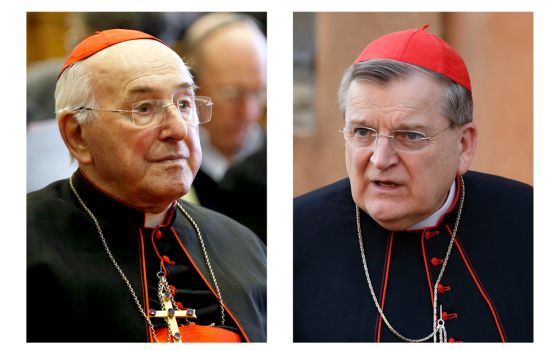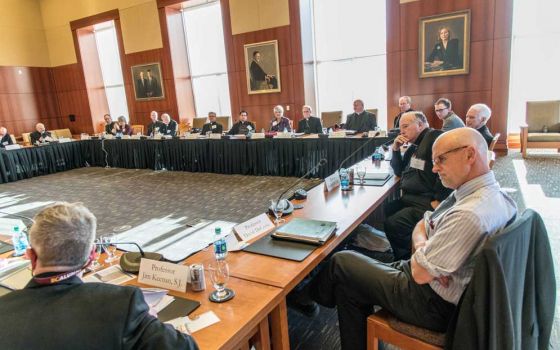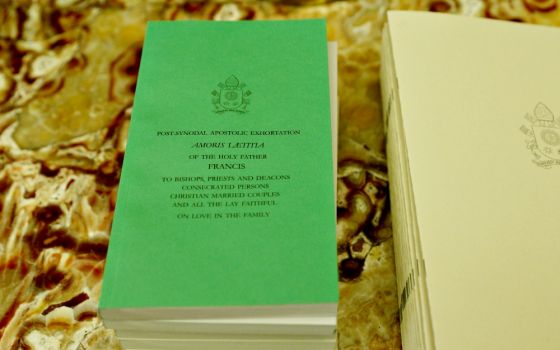Following the two synods he convened on marriage and family, Pope Francis has issued a lengthy declaration on family life, Amoris Laetitia ("The Joy of Love"). The document reflects his genuine commitment to a more pastoral and compassionate church. At the same time, it reflects the pope's reluctance to formally change church doctrine in the areas of marriage and family life. Some church leaders hope that this is the beginning of the "organic development" of church doctrine in these areas. But for the moment, Francis is clearly trying to find some middle ground between the conservative and progressive forces within the church.
Francis suggests a benevolent vagueness and a street level pastoral flexibility when it comes to divorced and remarried Catholics being welcomed back into the church. At the same time in noticeable contrast, he presents harsh specificity when he declares that same-sex marriage can never be considered equivalent to heterosexual marriage. His exhortation that LGBT people should be treated with respect and consideration and without discrimination is heartfelt and genuine. But the church has offered those words for some time, and they often ring hollow.
In holding to this approach, the pope inadvertently continues to gloss over the infuriating, insulting and wounding dichotomy between regularly expressing love, respect and compassion for LGBT people and at the same time implicitly or explicitly condemning them for acting on their nature. And unintentionally, he leaves the door open for some in our church to offer lip service respect for LGBT members and at the same time resort to subtle and not so subtle expressions of prejudice and exclusion, perhaps best seen today in the continuous firing of LGBT employees from Catholic institutions all over the country.
Pope Francis may be the best pope we see for a long time. He definitely wants the church to be more welcoming and less judgmental. He definitely tilts to love over the law. He urges pastors to meet people where they are. He emphasizes the role of conscience. But he is still not responding to a significant part of his flock. The statement from Equally Blessed, a coalition of Catholic LGBT advocacy and ministry organizations, captures the reality: "Pope Francis ultimately reinforces existing harmful church teaching that characterizes LGBT people as unable to reflect the fullness of God's plan for humanity."
Hopefully, Pope Francis, who is a good listener and a compassionate shepherd, will listen to those who will tell him that his work is not finished here. Hopefully this good man in an impossible job will come to see that yet another synod is called for to address LGBT issues. Hopefully he will listen to those Catholic scripture scholars and moral theologians who are calling for a thorough review of Catholic teaching on sexuality and natural law and a new ethical framework for sexual ethics. Hopefully in spending even more time than he has with LGBT people, he will, in the words of Marianne Duddy-Burke of Dignity USA, come to learn more about "the reality of LGBT people's faith, lives and family situations." And hopefully one day in our church, the "Joy of Love" will be for everybody.
[Brian Cahill is the former executive director of San Francisco Catholic Charities.]




